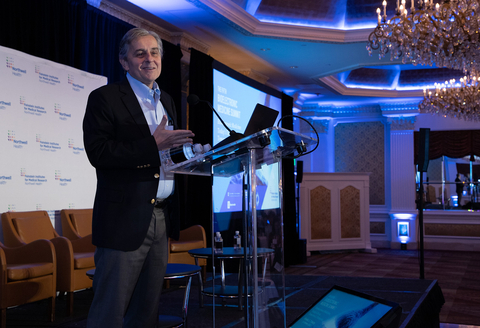
MANHASSET, N.Y.– Some of the most influential international medical experts, researchers and scientific minds participated in the fifth Bioelectronic Medicine Summit, “Bioelectronic Medicine: Today’s Tools, Tomorrow’s Therapies,” hosted by The Feinstein Institutes for Medical Research. Along with The Columbia University’s School of Engineering and Applied Science, the event was the first in-person Summit since the pandemic, taking place on October 11-12 at the Garden City Hotel in Garden City, New York, where more than 170 people attended.
Bioelectronic medicine combines molecular medicine, neuroscience and biomedical engineering to develop innovative therapies using computer chips and devices instead of drugs to treat a variety of diseases and conditions through stimulation of nerves, including paralysis, arthritis, pulmonary hypertension and inflammatory bowel disease.
“Progress in bioelectronic medicine is accelerating in clinical trials and basic science,” said Kevin J. Tracey, MD, president and CEO of the Feinstein Institutes and Karches Family Distinguished Chair in Medical Research. “This years’ Summit celebrated the collaboration between biomedical engineers, neuroscientists and molecular biologists that is driving the innovative progress for this exciting field.”

